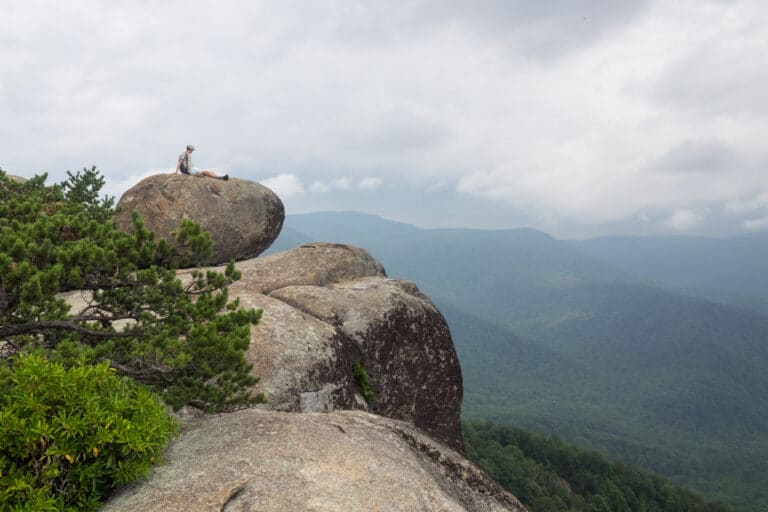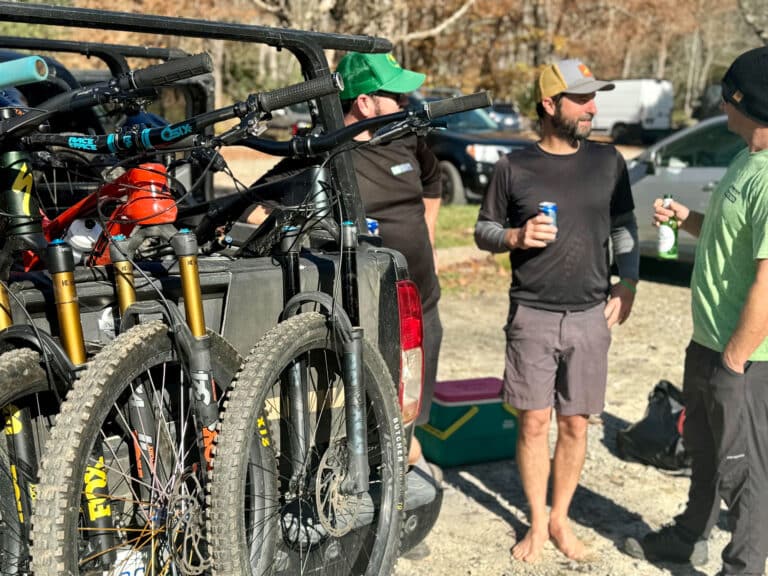Penn State dissolves its Outing Club, citing safety concerns.
The college years. Parties and beers, right? But if you were a suburbanite like me in 2002 and chose a college for its access to the outdoors, those years exploded with new experiences that had nothing to do with classes or parties. I explored the state forest bordering Penn State University, organized trips through the Outing Club, and gained many of the skills that help me professionally and personally today.
The Penn State Outing Club, the nation’s third oldest university outing club, has long been an organization through which students hone leadership traits and outdoor skills. PSOC has built trails, maintained gear for community rental, and adapted to student interest over the years.
Those experiences are now a thing of the past.
On April 2, 2018, PSOC was informed that “its activities exceed the University’s acceptable risk level,” according to club treasurer Timothy Hackett. After a risk assessment of 79 club sports, the university found the three outdoor recreation clubs (including the Nittany Grotto caving club and the Nittany Divers SCUBA club) exceedingly risky. The 98-year-old organization would be “dissolved at the end of the semester.”
Students were not allowed to see the risk assessment, but university spokeswoman Lisa Powers reports that “impact of activity, typical impact force, [and] severity and frequency of participant injury” were evaluated. The university also says that in December 2016, some students “expressed concerns related to the misuse of alcohol… in the context of already risky activities” but has not specified in which clubs or how often this occurred.
Can Students Lead?
If Penn State found its student-led organizations to be too risky, it would make sense to see other Blue Ridge colleges and universities moving in the same direction. In reality, though, a minority of universities have entirely staff-run outdoor recreation programs.
Many other student-run groups coexist with universities’ staff-led offerings. The University of Virginia has a staff-run Outdoor Adventure program which offers guided trips and rental gear. Meanwhile, the student-led Outdoors at UVA club allows dues-paying members to go on trips or borrow gear for free.
There are also universities where students lead all outdoor programming. Dartmouth Outing Club, the nation’s oldest, is entirely student-run with some staff oversight. Eric Ramsey, Associate Dean for Student Life at Dartmouth, supports the student-run model in part because “Outdoor education is fundamentally about the experience of immediate consequences related to decision-making: if you get your sleeping bag wet, you will be cold.” PSOC officers have also pointed out that student-led trips are more affordable than guided trips and build a community centered on personal growth instead of single experiences.
Risky Business
While renowned for its wilderness travel courses, the National Outdoor Leadership School is also a risk consultant for schools and nonprofits. “We try to help other programs manage the risks of operating in remote places, on both the proactive and response end of things,” says Katie Baum Mettenbrink, a NOLS Risk Services manager. These organizations turn to NOLS to make sure their programs survive, both literally in bringing home all the participants and in not meeting financial ruin via lawsuit. “We have not seen anything to suggest that student leaders are incapable outdoor risk managers,” Mettenbrink says, but she recommends leader training in three areas:
1) Leadership Skills: Leadership skills include group dynamics, logistics, and managing risk proactively. Most university clubs require workshops on these topics before students lead trips. PSOC’s leadership training program was being rebuilt at the time of the risk review.
2) Outdoor Skills: These “hard skills” are particular to each sport. Backpackers must know how to throw a bear bag, for example. In my PSOC days, student leaders had to master skills in a workshop before leading trips.
3) Responding to Emergencies: Mettenbrink says “College/university programs we’ve worked with require leaders to complete a 16-hour Wilderness First Aid (WFA) course for day and weekend trips.” Penn State met those requirements, and the Outing Club says many leaders had “superseding certifications, such as Wilderness First Responder, Swift Water Rescue, and/or Emergency Medical Technician.”
Déjà Vu
When I entered Penn State, PSOC leaders underwent training in all above topics. We offered rental equipment, published a trip schedule in our own magazine, and submitted all trip proposals to our university-appointed advisor.
In 2005, as campus recreation programs were coming into vogue, a risk management review similar to that in 2017 decided PSOC shouldn’t be managing technical gear like climbing ropes and PFDs. A newly created, staff-led Outdoor Adventures program took over the gear, and thereafter PSOC was housed under Club Sports where trips would require approval both by the club advisor and university staff. Current Outing Club leaders say their new trip paperwork “was designed and intended for typical organized sporting events, such as a wrestling tournament or track meet.”
In spring 2017, the university finally realized that club sports needed different procedures from outdoor clubs. It moved oversight to the Outdoor Adventures program created twelve years earlier. PSOC officers say new requirements “helped to bring the Outing Club closer to national standards,” and the group ran twelve trips under this model.
The club’s disbanding surprised students who had worked with Outdoor Adventures for fifteen months to revise safety procedures. Penn State has conceded that, in addition to perceived risk, “The amount of oversight required for the volume of trips that certain groups wanted to take was not sustainable by our Outdoor Adventures staff.” According to PSOC, the university claimed that both organizations were a “duplication of resources.” The students are eager for more training and even more paperwork, but the university isn’t willing to make that a possibility.
Petitions supporting PSOC have received over 22,000 signatures. The story has been covered in the media over 150 times, and 300 concerned alumni co-wrote a letter to the University’s president. The alumni letter got a prompt response from the Vice-President for Student Affairs. Alumnus Nick Clabbers says he is “cautiously optimistic” that upper administration understands the value of student-led outings. For now, PSOCers must only go on staff-led, more expensive Outdoor Adventures trips, but they are allowed to meet indoors. “We will continue to have meetings, host professional, and student speakers, and continue trail maintenance events,” says Hackett.
It’s not the experience I had, though, and they deserve better.








